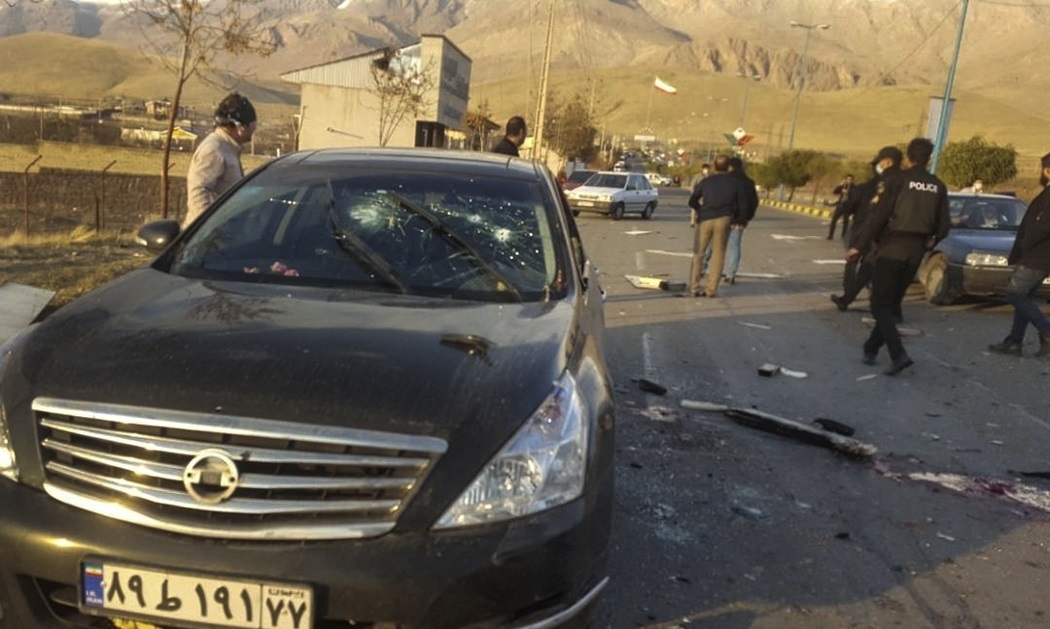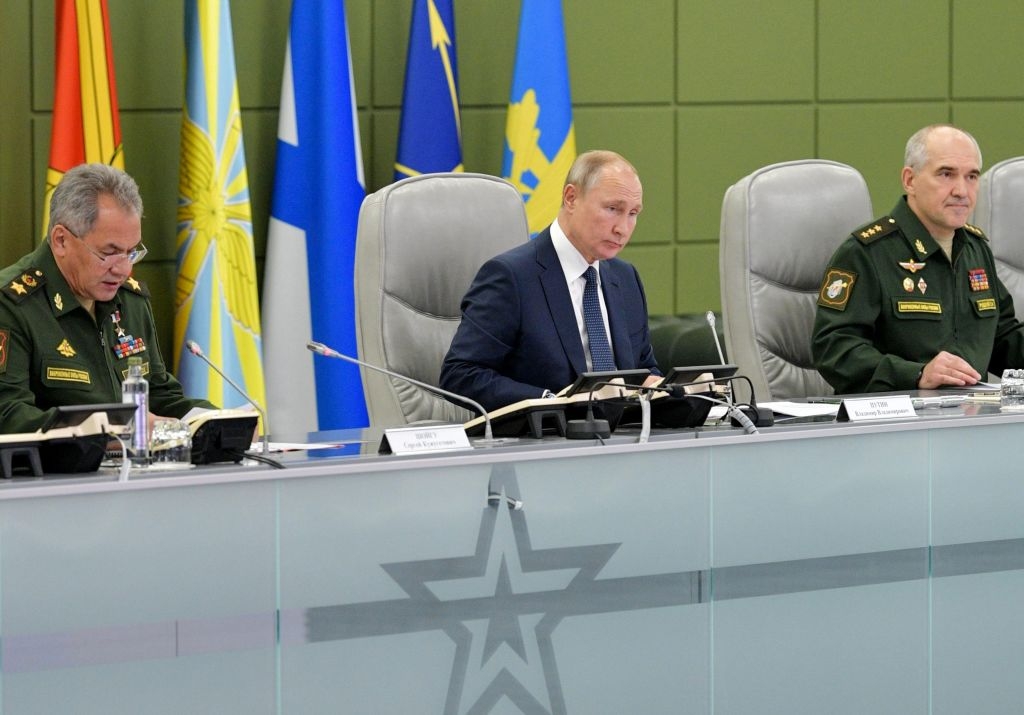In this mailing: - Richard Kemp: The Killing of a Nuclear Scientist May Save Countless Lives
- Stephen Blank and Peter Huessy: Tough but Necessary Road Ahead for Arms Control
by Richard Kemp • November 30, 2020 at 5:00 am Under the slogan "Death to America", Iran has been at war with the US, Israel and their Western allies since the Islamic Revolution of 1979, using proxy groups to kill hundreds of Americans in Iraq, Afghanistan, Lebanon and other places; and to launch terror attacks across the Middle East, Europe, the US and Latin America. Mr Fakhrizadeh was a brigadier general in the IRGC and therefore not only a senior military commander in a country at war with the US and its allies but also a proscribed international terrorist. Iran will never abandon what it considers its absolute right to become a nuclear-armed state, not under the current regime nor any future regime.... It has lied to the IAEA and the archive even sets out in detail the ways in which it has deceived the inspectors. Despite claims to the contrary, the JCPOA was never going to prevent a nuclear armed Iran... Its sunset clauses meant that at best the deal might have delayed Tehran's acquisition of nuclear weapons for a few years.... Any return to the JCPOA by a Biden White House, as is being pushed by Mr Brennan and other prospective administration officials, will not see a strengthened deal but more likely an even weaker one. Mr Brennan and the European supporters of his argument seem to believe that Iran can be contained by appeasement and negotiation rather than military strength and political will. The path advocated by the proponents of appeasement can only lead to infinitely greater bloodshed, violence and suffering than the death of a proscribed terrorist on the streets of Iran.
 Iran-appeasers who condemn the targeted killing of Iranian nuclear scientist Mohsen Fakhrizadeh, a brigadier general in the Islamic Revolutionary Guard Corps, have exhibited shocking disregard for the death, destruction and suffering likely to be inflicted by the totalitarian Iranian regime utilising Fakhrizadeh's pernicious expertise. Pictured: The scene of Fakhrizadeh's assassination on November 27, near Tehran. (Image source: Fars/ Wikimedia Commons) With unfailing predictability, EU external affairs spokesman Peter Sano as well as other European Iran-appeasers rushed to condemn the targeted killing on November 27 of Iranian nuclear scientist Mohsen Fakhrizadeh. In doing so they exhibited shocking disregard for the death, destruction and suffering likely to be inflicted by the totalitarian Iranian regime utilising the pernicious expertise of Mr Fakhrizadeh. From across the Atlantic they were joined by, among others, former CIA Director John O. Brennan, who described the killing as "state-sponsored terrorism" and "a flagrant violation of international law". Yet Mr Brennan was in the White House Situation Room in 2011 when the US launched an operation to kill Usama bin Laden on Pakistani sovereign territory. Presumably he was not whispering into President Barack Obama's ear that SEAL Team Six were violating international law. Continue Reading Article by Stephen Blank and Peter Huessy • November 30, 2020 at 4:00 am Russia's strategy with nuclear weapons, as outlined in official documents and many analyses, leans towards what General John Hyten, the Vice Chairman of the Joint Chiefs of Staff, has referred to as "escalate to win." Moreover, the absence of China as a party to any arms agreements, including New START, gives China a total "free ride" on nuclear issues in that there is no requirement for China to limit any of its nuclear weapons, even if the US could verify such an agreement. Such calls for one-sided cuts to the US arsenal, particularly during a serious negotiation such as the current one with Moscow, simply undercut America's negotiating leverage. The fact is that no matter what the US does, both Moscow and Beijing will continue to build nuclear and other high-tech weapons, including space weapons and hypersonic-capable weapons.... If these adversaries cannot compete on the conventional level, they have no choice, given their ambitions, but to go nuclear to assert themselves against the interests and values of the US and its allies, and carry out their aggressive and hegemonic designs. Moreover, as inherently imperial autocracies, they are driven from within to states of siege, if not war, with the US, as well as imperial probes across Europe, Asia, and the Middle East. For these reasons, the Trump Administration has correctly focused on ending China's "free riding" regarding arms control talks and on placing all of Russia's nuclear programs on the table, coupled with far better verification. Many of those opposing such a strategy apparently have forgotten that the first reason a great power such as the US engages in arms control is not altruism. Rather, and as the fathers of deterrence theory understood, arms control is an action that states undertake primarily to advance their own interests and security and that of their allies. Thus, from a US perspective, perpetuating the status quo would hardly be a satisfactory outcome for Washington and its allies.
 Russia's strategy with nuclear weapons, as outlined in official documents and many analyses, leans towards what General John Hyten, the Vice Chairman of the Joint Chiefs of Staff, has referred to as "escalate to win." Pictured: Russian President Vladimir Putin (center) observes military exercises in Moscow on October 17, 2019. Ballistic and cruise missiles were fired as part of the Grom (Thunder) 2019 strategic exercises. (Photo by Alexei Druzhinin/Sputnik/AFP via Getty Images) The New START Treaty will expire in February 2021. The next administration will therefore have only weeks to decide on how to proceed regarding arms control negotiations with Russia. Although some negotiations with Russia are already taking place, the complexities of the issues make it most unlikely that the current dialogue will lead to a new treaty by February. Continue Reading Article |
|
|
No comments:
Post a Comment